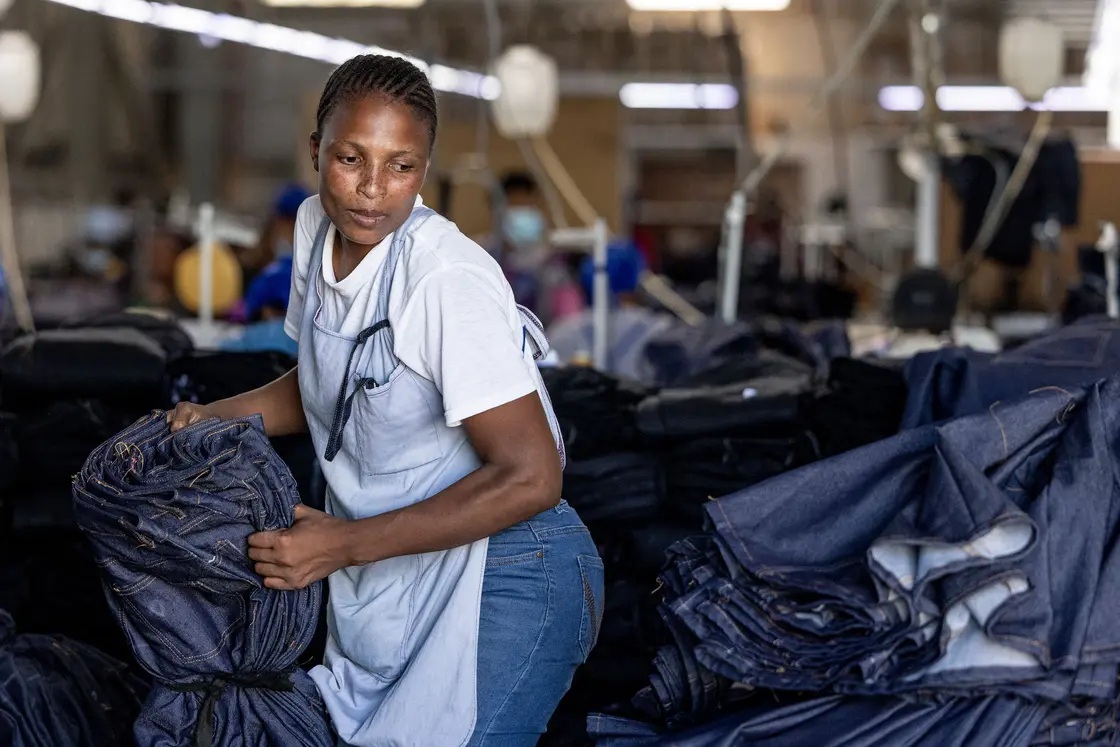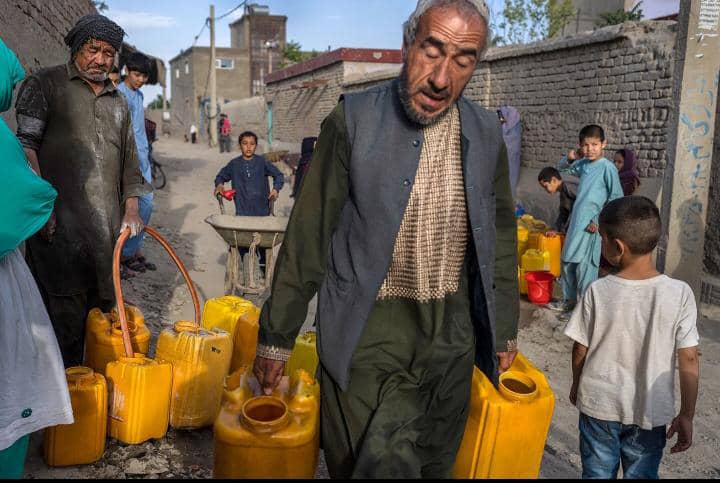Africa
Lesotho Declares Disaster as Youth Jobs Vanish Amid U.S. Tariff Turmoil

Lesotho has declared a national state of disaster in response to the country’s escalating youth unemployment and widespread job losses, a crisis exacerbated by recent economic uncertainty tied to U.S. trade policy shifts.
The announcement was made on Wednesday, July 9, 2025, by Deputy Prime Minister Nthomeng Majara, who confirmed that the state of disaster will remain in effect until June 30, 2027.
This declaration, made in accordance with the country’s Disaster Management Act, enables the government to deploy emergency measures aimed at mitigating the crisis and reviving the economy.
Unemployment in Lesotho currently stands at around 30%, but the figure is significantly higher among the youth, where it nears 50%, according to official statistics.
The dire employment landscape has deepened following disruptions in Lesotho’s key export market, the United States, due to tariff changes introduced by former U.S. President Donald Trump.
In April, Trump imposed a 10% tariff on Lesotho, with a proposed additional 50% that has since been suspended.
These sudden trade restrictions have cast doubt on Lesotho’s continued participation in the African Growth and Opportunity Act (AGOA).
The Act is reportedly a U.S. initiative that has historically offered duty-free access to American markets for certain African countries.
AGOA has been instrumental in sustaining Lesotho’s textile and garment sector, the country’s largest private employer and main economic driver.
In 2024, Lesotho’s exports to the U.S., primarily textiles and clothing, were valued at approximately $240 million.
However, the uncertainty surrounding AGOA’s renewal, coupled with the abrupt imposition of tariffs, has led to a decline in orders from U.S. buyers.
Businesses are reportedly hesitant to commit to new contracts under unclear trade conditions.
Lesotho’s Trade Minister Mokhethi Shelile warned that up to 40,000 jobs could be at risk if AGOA is not renewed by the end of September 2025.
This uncertainty compounds existing economic challenges.
Even before the trade tensions, Lesotho’s economy was grappling with structural issues such as limited diversification, over-reliance on textile exports, and a young population entering a sluggish job market.
The situation worsened following the termination of U.S. foreign aid initiatives.
These include USAID and the U.S. President’s Emergency Plan for AIDS Relief (PEPFAR), which had provided critical funding for health and development programs.
In response to the crisis, several government departments have already begun implementing measures aimed at stimulating job creation and economic activity.
Among the first steps taken is the removal of business registration fees for small and medium-sized enterprises, intended to lower barriers for entrepreneurship and self-employment.
The state of disaster allows the government to redirect resources more rapidly and flexibly to address the unfolding crisis.
Lesotho, a landlocked country surrounded by South Africa and home to just over two million people, has faced a series of hardships in recent years.
Until March 2025, the country was under an eight-month state of disaster due to severe food insecurity caused by prolonged drought.
At that time, nearly 700,000 Basotho were reportedly experiencing extreme hunger, highlighting the vulnerability of the nation’s food supply and economic resilience.
Critics argue that the current employment crisis has been long in the making.
They cite years of economic mismanagement, reliance on a single industry, and a lack of proactive policies to diversify income sources.
However, the shock from international trade disruptions and aid cuts has significantly accelerated the impact, pushing the country into an urgent state of emergency.
Lesotho’s leadership hopes that the disaster declaration will serve as a wake-up call, prompting both domestic reform and renewed international engagement.
With AGOA’s future hanging in the balance and U.S. trade relationships in flux, Lesotho faces a pivotal moment.
Whether it can turn this crisis into an opportunity for structural transformation will depend on how effectively it mobilizes resources and supports young entrepreneurs.
It will also depend on how it repositions its economy for resilience in an increasingly uncertain global market.
For Diaspora Digital Media Updates click on Whatsapp, or Telegram. For eyewitness accounts/ reports/ articles, write to: citizenreports@diasporadigitalmedia.com. Follow us on X (Fomerly Twitter) or Facebook











